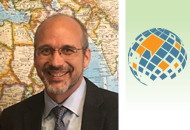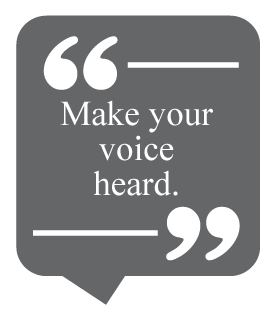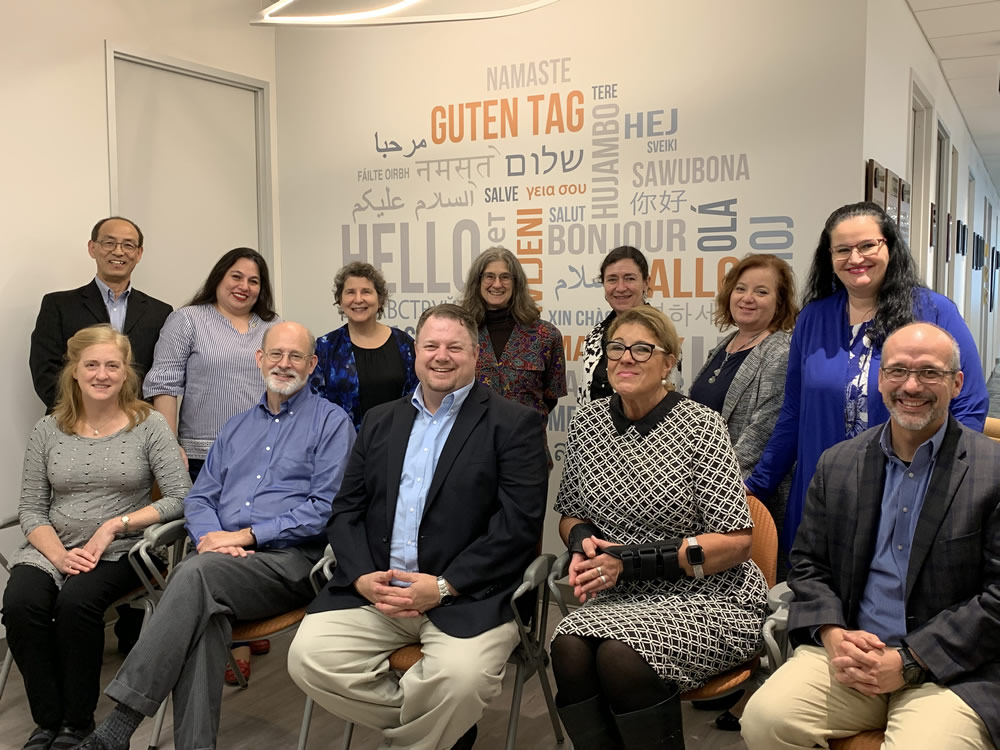|
 Last week was an exciting time to be in greater Washington, DC. I am not just talking about the Washington Nationals’ ascent to the World Series. (Nonbaseball fans, please forgive our excitement, but Washington, DC has not had a team in the World Series since 1933. And the rest of the world, please forgive our vocabulary, because there is no sense in calling a championship series for 29 U.S.-based teams and one Canadian team a World anything.) No, in the world of TESOL, what was really exciting was the gathering in Alexandria, Virginia of TESOL’s Board of Directors. This is your Board—our Board—and their work guides our association. Last week was an exciting time to be in greater Washington, DC. I am not just talking about the Washington Nationals’ ascent to the World Series. (Nonbaseball fans, please forgive our excitement, but Washington, DC has not had a team in the World Series since 1933. And the rest of the world, please forgive our vocabulary, because there is no sense in calling a championship series for 29 U.S.-based teams and one Canadian team a World anything.) No, in the world of TESOL, what was really exciting was the gathering in Alexandria, Virginia of TESOL’s Board of Directors. This is your Board—our Board—and their work guides our association.
The board is made up of 11 directors—all elected by you. If you count country of birth, citizenship, or residency, these 11 members represent eight different countries across five different continents! And they are an incredibly multilingual group, collectively speaking dozens of different languages.
 The board meeting covered some of the routine topics you might expect: reviewing professional council, management, and investment reports; discussing new professional learning programs; and exploring the impact of TESOL Quarterly, our industry-leading journal, and TESOL Journal, our members-only journal. The board also made some key decisions that you will all be learning about soon: the location of the 2025 TESOL International Convention & English Language Expo and the 2020 James Alatis Award winner. The board also addressed many of the critical and strategic issues affecting our association. They reviewed our nondiscrimination policy for nonnative speakers, “Position Statement Against Discrimination of Nonnative Speakers of English in the Field of TESOL,” and explored how we can lead a global campaign to measure excellence in English language teaching through skills, experience, and credentials rather than the irrelevant question of where one was born and how one first learned English. We met with the chairs of the Diverse Voices Task Force and discussed ways that TESOL can continue to live up to our ideals of diversity, equity, and inclusion. And we committed to the high priority strategies that we will employ next year to help us achieve our strategic outcomes of greater global presence and connectivity, an increase in TESOL knowledge and expertise, and an amplified voice to advocate for English language teachers and learners. Stay tuned for more information about each of these initiatives. The board meeting covered some of the routine topics you might expect: reviewing professional council, management, and investment reports; discussing new professional learning programs; and exploring the impact of TESOL Quarterly, our industry-leading journal, and TESOL Journal, our members-only journal. The board also made some key decisions that you will all be learning about soon: the location of the 2025 TESOL International Convention & English Language Expo and the 2020 James Alatis Award winner. The board also addressed many of the critical and strategic issues affecting our association. They reviewed our nondiscrimination policy for nonnative speakers, “Position Statement Against Discrimination of Nonnative Speakers of English in the Field of TESOL,” and explored how we can lead a global campaign to measure excellence in English language teaching through skills, experience, and credentials rather than the irrelevant question of where one was born and how one first learned English. We met with the chairs of the Diverse Voices Task Force and discussed ways that TESOL can continue to live up to our ideals of diversity, equity, and inclusion. And we committed to the high priority strategies that we will employ next year to help us achieve our strategic outcomes of greater global presence and connectivity, an increase in TESOL knowledge and expertise, and an amplified voice to advocate for English language teachers and learners. Stay tuned for more information about each of these initiatives.
With so many talented TESOLers gathered together, it also gave me an opportunity to draw on their wisdom, so that I can share it with you. In the in-between-moments of our meetings, I asked the board members to suggest one piece of advice that they would give to any TESOL member, new or experienced alike, and I would like to share some of these suggestions with you.

TESOL International Association Board of Directors, 2019 (click image to enlarge).
Justin Shewell, senior international educator at Arizona State University, and Deborah Healey, our current president and professor emerita at the University of Oregon, both talked about how TESOL members can connect with and support each other. “Use the interest section lists for advice,” suggested Justin. “And provide assistance to others.” He also reminded members to use the TRC—the TESOL Resource Center, which includes lesson plans, teaching tips, activities, assessment tools, and much more.
Deborah had a simple, but valuable suggestion: “Read the myTESOL lounge and respond to someone.” If each of our members took the time to do that each week, just imagine the level of knowledge and expertise that we could share.
Christel Broady, Chair, Advanced Graduate Programs, Director of ESL Programs at Georgetown College, put her advice in the context of advocacy. “Consider becoming a TESOL member so that you can make your voice heard,” she suggests. “Nobody knows your context of teaching English as you do. Make sure that the association as a whole hears the positions of all members so that all situations will be considered in policies, standards, and worldwide leadership in the profession. You count. Everyone counts.” Absolutely true!

For Kathy Lobo, high school ESL teacher at Newton Public Schools and lecturer at Brandeis University, and Grazzia Mendoza Chirinos, Project Management Specialist, Basic Education, ICTs and Gender, at the U.S. Agency for International Development, the key is engagement, regardless of where in the world you are based. “The main thing is to be engaged in your professional life as a lifelong learner, both with TESOL International Association and your local affiliate,” says Kathy. “TESOL has a wide range of ways to engage across one’s career, including retirement. When you engage with people there is a profound relationship that is established and that becomes transformational.”
Looking from her perspective in Honduras, Grazzia suggests, “Become engaged, volunteer, be active in the work of TESOL International Association. There are online and on-site ways that fit your agendas and schedules. Also, network, meet other like-minded colleagues who have lots to share and with whom you can engage in projects. Finally, go back to your countries and to your schools and share everything you have learned. Talk about TESOL and lead them into becoming active in TESOL and the local affiliate. You can’t lose. It is a win-win situation!”
These are such simple, but powerful ideas—ways in which you can help yourselves, help each other, and strengthen our association. I look forward to hearing more ideas from all of you, the board, and other TESOL leaders about how we can all engage, learn, and advocate together.
Christopher Powers
TESOL Executive Director
Email: cpowers@tesol.org
Twitter: @TESOL_Powers
|